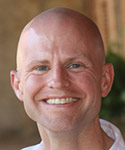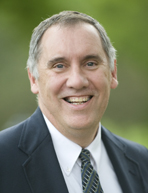Evaluation & assessment
Recently published
Lessons from lions: Acknowledging failures as well as successes
When we focus only on the shiniest success stories, we miss out on what we can learn from the realities of failure, writes a director of grants for Leadership Education at Duke Divinity.
 Link to author Victoria Atkinson White
Link to author Victoria Atkinson White
Where is the measuring tape?
COVID has complicated how we determine the scale of our work, but asking key questions can help, writes the executive director of Leadership Education at Duke Divinity.
 Link to author David L. Odom
Link to author David L. Odom
Nathan Kirkpatrick: Are churches counting what counts?
Beyond average Sunday attendance, there are other ways to measure the role of churches in the community. Things like footprint, partners, impact and calling also tell a story.
 Link to author Nathan Kirkpatrick
Link to author Nathan Kirkpatrick
Jeffrey Kaster: Why I love program evaluation
Yes, many people think evaluation is a chore. But done right, it can be an astonishingly effective tool in building excellent ministry, writes the director of a Youth in Theology and Ministry program.
 Link to author Jeffrey Kaster
Link to author Jeffrey Kaster
Susan M. Weber: Reframing evaluation
Effective evaluation is about learning from one’s work, not judgment. It is a process that must be in place from the beginning of a project and be done in community, writes the director of the Evaluation & Communication Project at the Center for Congregations.
 Link to author Susan M. Weber
Link to author Susan M. Weber
Gretchen E. Ziegenhals: The how of asking good questions
Christian leaders spend their workdays asking questions, but few are trained in how to ask good ones. Good questions are powerful tools for building relationships, assessing needs, creating an atmosphere of inquiry and imagination, and charting a way forward.
 Link to author Gretchen E. Ziegenhals
Link to author Gretchen E. Ziegenhals
Dave Odom: Name your mission, develop strategies and then evaluate impact
Clarifying mission is just the first step. Leaders must then align strategies with the desired impact, writes the executive director of Leadership Education at Duke Divinity.
 Link to author David L. Odom
Link to author David L. Odom
Nathan Kirkpatrick: How to encourage constructive, honest feedback
Many churches and institutions ask for feedback yet signal in subtle or not-so-subtle ways that they only want to hear what they’re doing well, writes a managing director at Leadership Education at Duke Divinity.
 Link to author Nathan Kirkpatrick
Link to author Nathan Kirkpatrick
Dave Odom: Measuring ministry impact takes years
Your supporters might want to see immediate results. But your role as an institutional leader is to focus conversations around long-term impact and vision.
 Link to author David L. Odom
Link to author David L. Odom
L. Roger Owens: The better way to 360-degree feedback
Leaders of all stripes need feedback -- the good, the bad and the ugly. But such honesty is possible only in the context of covenant, says a professor of leadership and ministry.











